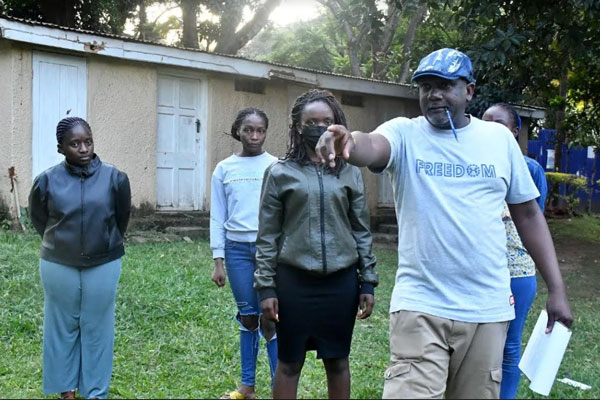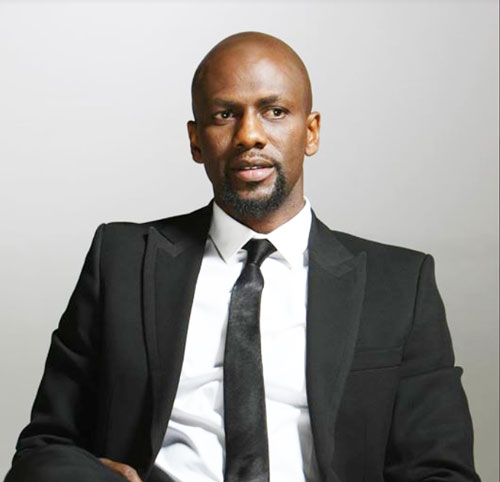
ANALYSIS THE ARTS | THE INDEPENDENT | Ever wondered why while watching certain movies you get so gripped by or immersed in the story that you forget it is actually acted? Some times you get so bitter at a protagonist or you get so emotionally attached to a character.
This is a result of many things, because filmmaking is a summation of several processes – the story idea itself, screenwriting, casting, pre-production and post-production. But none of this would matter if the actor did a wack job in bringing the character to life.
A good actor performs with naturalism and nuance. You believe them. You don’t see an actor who learned their lines, put on a costume, and followed the director’s exact instructions in front of a camera; you see the character and get a sense of their lived-in reality, even if it’s a detail that goes unsaid.
To ace their roles, individual actors apply different processes depending on what works for them.
For Nigerian-born South African-based actor, Fabian Adeoye Lojede, it is researching the character he is playing and referring to characters that have similar attributes.
“I mark my scene and ascertain whether my character is the hero or otherwise. Then I look out for other nuances,” Lojede told Ugandan actors during a Masterclass on Acting. The masterclass which was organized by Uganda Communications Commission (UCC) and MultiChoice Uganda was among a series of activities during this year’s Uganda Film Festival.
His process also involves visualizing the set and his movements and repeatedly playing this in his head. This is because, he says, perfecting the actions helps him perfect the lines.
In his opinion, techniques like method acting are not realistic in places like Africa, given the economic dynamics of African countries.
“No producer is going to pay you enough so you can shut the world out and immerse yourself in a character. During the shooting of Blood Diamonds, the producers could afford to fly Leonardo DiCaprio to South Africa to spend six months there before shooting. But in the African filmmaking industry, it is not practical”.
Lojede is famous for his role in hit drama series, Jacob’s Cross. He also owns a production company in South Africa.
Philip Luswata has been acting for almost three decades. The acclaimed director and playwright who co-facilitated the masterclass challenges actors to pay attention to the tiny yet consequential details that make good actors. For example, how someone makes an entrance (on set).

“An entrance is of paramount importance to a performer. It is a big responsibility. You must understand what the objective of your entrance is. That space is a spiritual space, you must pay keen attention,” Luswata told participants, explaining that an entrance serves to; reveal a character, introduce conflict, define power or redefine it and to excite different reactions.
Over the last decade, Uganda’s storytelling has evolved. While there are films that affirm the way the Ugandan stories are told has improved, there are still those that point to the lack of authenticity when it comes to acting.
There are cases where actors make the most predictable choices at any moment, their actions are unbelievable and often times their lines come off so plastic. They end up putting up corny, over-the-top performances.
For Ugandans who still prefer Hollywood productions over Ugandan stories, the excuse has always been patterns of dramatic or quirky facial, bodily, and vocal mannerisms, unrealistic accents, and a lack of naturalism due to sticking to the script without leaving room for flexibility.
Partly, Luswata who featured in films Queen of Katwe, The Girl in the Yellow Jumper and Kafa Coh, blames this on actors who focus on cramming the director’s script but are unconscious of their body language. He says actors’ bodies carry subtle messages which are delivered through gestures and actions.
Citing a phenomenon known as conscious constructive control, he tips performers to avoid doing (physical) things that are harmful to their delivery. The technique requires, first of all, a practical demonstration, conveying the experience of what actions are wrong; and then clear instruction as to how they can be avoided.
Uganda’s quest to appeal to international audiences has been slow. It took nine years, since 2013, for Uganda to win another Africa Magic Viewers’ Choice Award. Only a few local titles (like Tembele and Veronica’s Wish) have registered meaningful commercial success at the local cinema. While there are other factors – like the lack of marketing and distributing structures – to blame for this slow progress, some players in the industry have still faulted the talent in the local industry.
Award-winning actor Michael Wawuyo Jr., has previously expressed concern over the lazy attitude of Ugandan actors who do not challenge themselves beyond the bare minimum.
Wawuyo Jr., famed for his role as ‘Brother John’ in Ugandan hit television series, The Hostel, says the vast majority of Ugandan actors want to be spoon-fed, and that this is the only thing standing between their potential and competing favorably on the global scene.
He cited cases where actors interpret the script on its face value rather than continuously dialogue with the Director to best appreciate his/her direction of the character.
“You must unearth those sweet juices of love, anger and emotion that you are telling. Some Directors love to use subliminal lines. If you say the words as flat as he has written them, of course the audience will tell that something is off in your performance.”
But an actor is as their director. The assumption is often that the actor is mediocre, forgetting that they are guided by a director.
Lojede says sometimes, directors’ inability to perform their role affects how much an actor can give to their character.
“If the director is crap, I won’t put my talent in their hands. Some directors don’t know their role. They don’t direct. You have to be able to trust him that he knows what they are doing. If they are good, you must follow their voice and vision. The director must have a clear vision of the story,” Lojede said.
 The Independent Uganda: You get the Truth we Pay the Price
The Independent Uganda: You get the Truth we Pay the Price



